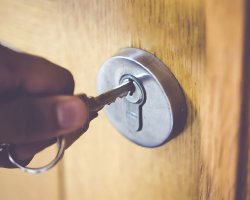Things Not to Say to Someone in Addiction Recovery

Having been in addiction recovery for nine years, I have had the opportunity to help others and inspire many people. I don’t say this to sound arrogant but only to share one of the excellent parts of overcoming addiction. On the other hand, I have also had several experiences where people have said some unhelpful things to me that were not beneficial in any form. Often these things are said without the intention of being hurtful, but come across that way nonetheless.
If you meet someone in recovery, I would advise against saying any of the following statements to them.
1. You don’t look like someone who had an addiction.
While intended as a compliment, it isn’t very kind to say this to someone for several reasons. The first being that you are implying that people with addiction look a certain way. You are also suggesting that I always looked this way and that if I did not, then there was something wrong with me. So again, I understand that the intention is a kind gesture, but remember it is tone-deaf and just not a nice thing to say to someone. So if you catch yourself about to say this, please don’t.
2. You weren’t that bad off.
I have had a couple of people say this to me who didn’t know the extent of my drinking problem. This statement is a dangerous thing to say to someone in recovery because it can cause them to question their decision to get sober. Just because you didn’t see how bad someone’s life became doesn’t mean that addiction wasn’t destroying their life. The other thing to remember is that not everyone’s rock bottom will look the same. A person doesn’t need to become homeless to want to quit. The sooner a person can stop, the better off they will be.

3. I didn’t think you would stay sober that long.
This statement is invalidating yet is often meant as a compliment. But it is an insult. Don’t say this to people, even if you thought it, just don’t. It’s not a nice thing to say to someone.
4. Don’t you ever want to drink again?
I’ve had people ask me this, but it is a complex question, and it is honestly no one else’s business. I had a person ask me this in the context of implying I was missing out by not drinking. If a person has decided to get sober, then just let them be sober. You don’t need to question their motives, reasons, or how long they plan to be that way. It isn’t any of your business, and asking someone these things is not helpful. If someone else’s sobriety makes you uncomfortable, it may be time to examine your relationship with drugs or alcohol.
5. I don’t know how you do it, but good for you, I guess.
Saying this to someone implies that their life is boring or undesirable because they are sober. It is an unkind thing to say to someone in recovery. It usually takes a lot of work for a person to get to the point that they can stay sober, and saying things like this can make them question their decision. If what you are saying isn’t supportive, then don’t say anything about the subject.
6. Oh my gosh, your life must be so dull.
I had someone say this to me once, and it was hurtful at the time. Now I can see it for what was and detach myself from that person’s projection of their misunderstanding about addiction recovery. To set the record straight, no, my life is not boring because I don’t drink. If anything, the life I lived before I got sober was boring because all I did was drink. Do you see the irony there?

7. I bet you’d be okay if you had one drink; it’s been so long.
Again, this is a dangerous thing to say to a person who is in addiction recovery. I know the person well enough to know that they didn’t understand the possible consequences of that statement, otherwise, they never would have said it. Here’s the thing, I know myself well enough to know that when I drink alcohol, I am unable to stop at just one drink. When I drink, it consumes my thoughts, my mind, and my life. When I drink, all hell breaks loose. So because of this, no, I would not be okay if I “had one drink.” Thank you.
8. It’s sad you don’t go to (insert triggering event here) anymore.
I once turned down tickets to a free concert because I knew there would be a lot of drinking and drug use going on, and I would be the only sober person in my group. I had a lady condemn me for this, saying I was missing out. Here is the thing, going to an event and being the only sober person in my group does not sound like fun to me. Likewise, being a designated driver does not sound like fun. So no, by knowing my limits and setting healthy boundaries, I am not missing out; I am protecting my sobriety. So, again, this is something you shouldn’t say to a recovering addict.

9. That’s nice you got sober, but I choose to have fun.
Someone said this to me, and writing it down sounds so ridiculous. There are people out there who are so insecure in their own decisions they will say things like this to make themselves feel better. You do not need to use drugs and alcohol to live in the moment and have fun; if anything, my drinking made me do the opposite.
10. You must have screwed up if you decided to stop drinking.
It doesn’t matter anyone’s reasons for wanting to get sober. If they’re going to share them with you, that’s great, and if they don’t, that is okay, too. However, it doesn’t do any good to make someone feel bad about their decision to turn their life around.
At the begging of my recovery, I used to take a lot of these things personally. I allowed them to mess with my head and would often feel bad about myself for a while after hearing statements like these. Over time, I learned that it said a lot more about the other person saying these things than it ever did about me. People who are uncomfortable with another person’s sobriety are usually that way because they are uncomfortable with their drinking or drug use on some level.
The most important thing to remember when it comes to talking to someone in addiction recovery is that if you don’t have anything nice to say, don’t say anything at all.


 ®
®